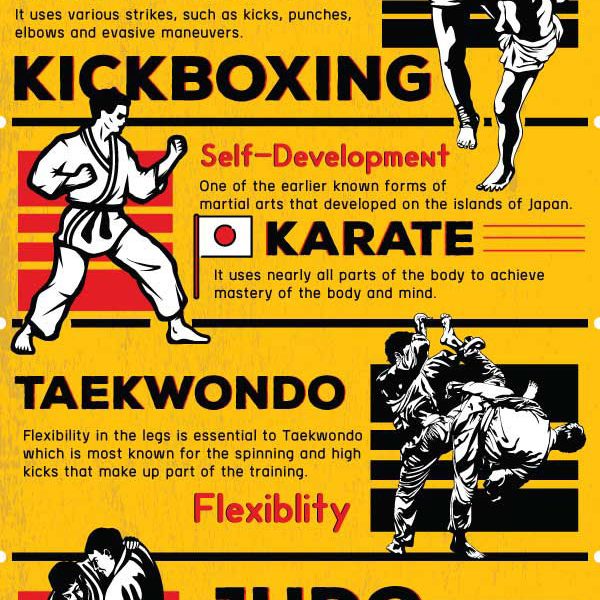Discovering The Differences Between Traditional Martial Arts And Contemporary Fight Sports
Discovering The Differences Between Traditional Martial Arts And Contemporary Fight Sports
Blog Article
Writer-Thuesen Sexton
When you think about martial arts, do you lean extra toward the conventional practices or the modern fight sporting activities? best martial arts to learn at home offers unique benefits and experiences, formed by their viewpoints and training methods. Typical martial arts highlight individual development and self-control, while modern-day battle sports concentrate on competition and performance. Recognizing these distinctions can guide you in picking the ideal technique for your journey. But exactly how do these differences materialize in training and viewpoint?
The Approach and Background Behind Typical Martial arts
While many people connect martial arts with physical battle, the ideology and background behind typical martial arts run much deeper. You'll find that these techniques stress personal development, discipline, and respect.
Originating from ancient practices, conventional martial arts were typically established for Self-Defense and spiritual advancement. They embody principles such as balance, consistency, and self-constraint, assisting specialists beyond plain combating abilities.
As you train, you'll not just discover strategies however likewise get insights right into the culture and values that formed these arts. The routines and traditions, usually given through generations, cultivate a feeling of area and belonging.
The Competitive Nature of Modern Combat Sports
Modern fight sporting activities have changed the landscape of martial arts right into a very competitive sector, where professional athletes challenge in a test of skill, method, and endurance.
You'll notice that competitors are typically organized with strict guidelines and regulations, making sure fair game and safety. These occasions attract big audiences, fueling the excitement and intensity of competitions.
Athletes train carefully, not just for physical expertise however also for mental sturdiness, recognizing that every information counts in the ring. The adrenaline thrill during competitors is palpable, as fighters push their limits to assert success.
https://lookout.co/santacruz/recreation-sports/story/2023-08-13/daniel-compton-lfa-ufc-santa-cruz-mma-pro-faces-make-or-break-fight-in-front-hometown appreciate the athleticism and creativity included, making modern battle sporting activities a thrilling spectacle that continues to evolve and captivate lovers all over the world.
Training Approaches and Strategies: A Comparative Evaluation
The affordable ambience of modern battle sporting activities needs ingenious training methods that differ significantly from typical martial arts.
In modern training, you'll concentrate on specific strategies, sparring, and conditioning, commonly making use of drills that imitate real battle situations. You'll see a focus on quantifiable performance and constant competitors to assess your skills.
In contrast, conventional martial arts focus on forms, katas, and thoughtful teachings, typically highlighting discipline and regard over competition.
Training is typically less extreme and may involve repetitive practice rather than real-time sparring.
While both strategies construct ability and fitness, contemporary fight sports provide a more dynamic and adaptable training environment, preparing you for immediate challenges in the ring or cage.
Choose the path that aligns with your objectives and passions.
Verdict
In picking in between traditional martial arts and modern fight sports, it truly boils down to what you value many. If you're looking for personal development, technique, and a sense of community, standard arts might be your finest fit. Yet if you flourish on competitors and real-time obstacles, contemporary battle sports could be the means to go. Eventually, both courses provide unique benefits, so it's everything about straightening your training with your personal objectives and rate of interests.
